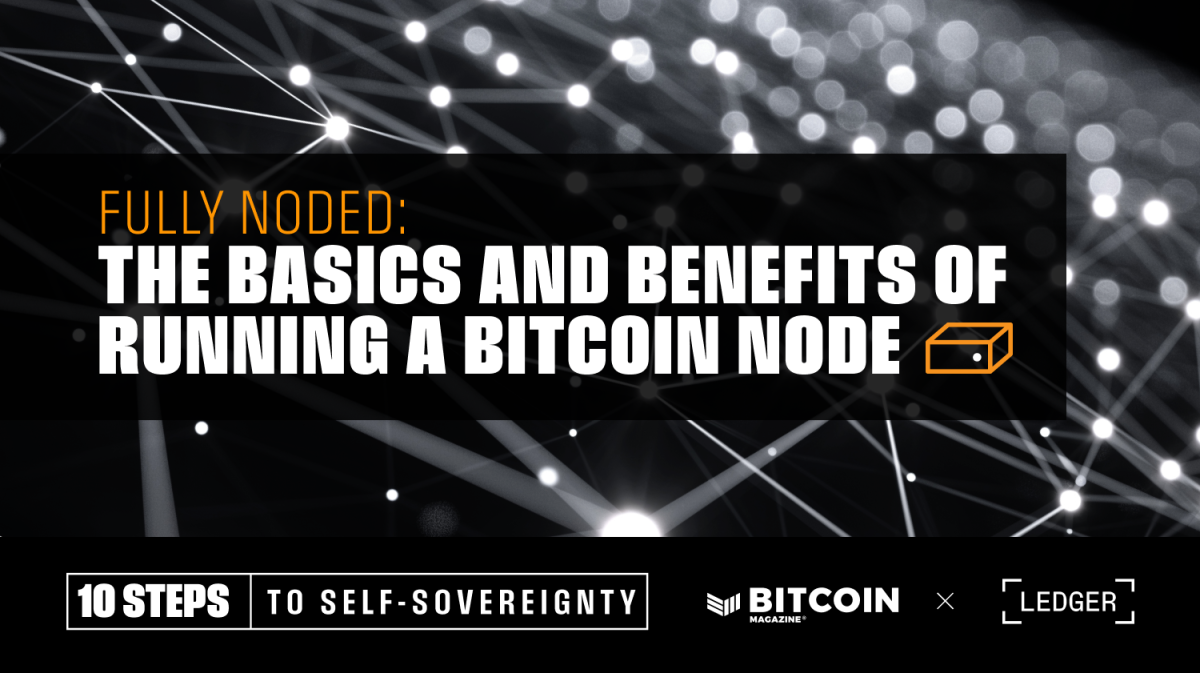Full Node: Basics and Benefits of Operating a Bitcoin Node


Bitcoin is a decentralized and finite digital currency, meaning it can be verified by anyone, anywhere in the world. This is the main reason why people are interested in holding it. No one can dilute the supply, and no one can counterfeit Bitcoin. Bitcoin simply operates as an autonomous system that cannot be interfered with. So how do we fully participate in this system to verify everything?
If you think that simply using a Bitcoin wallet is enough, we regret to tell you that you cannot actually become a full participant in the Bitcoin network. The wallet simply manages your private keys and helps you create and sign transactions, but does not actually participate in the overall verification of the Bitcoin blockchain.
To become a node and verify transactions, you must run additional software called a client. This software handles the actual processing and verification of the blocks miners generate. The most widely used Bitcoin client is Bitcoin Core.
Although you can interact with Bitcoin using just a wallet without running a full node, there are actually benefits to using Bitcoin Core directly.
See for yourself
When you initiate and sign a transaction to send Bitcoin, the signed transaction moves to a node on the Bitcoin network. These full nodes, some of which are miners, confirm transactions and then form a race to create the next block. Miners group transactions into a single block, and once the necessary proof-of-work is complete, that block is broadcast to the network.
Most people will not be interested in other people’s Bitcoin payments. If you are not the sender or receiver of the transaction, why would you care? If a transaction in a Bitcoin block is not a valid transaction, the entire block is considered invalid and rejected by all full nodes running on the network. This means that to be absolutely certain that a payment marked as confirmed by your wallet was actually confirmed, you need to know that all other confirmed transactions in that block are also valid.
Full Node handles all of this automatically. Whenever a block is found, the node automatically verifies that all coins spent have not been spent before, all signatures are valid, and all other spending conditions, such as time locks, meet the spending requirements.
If you use a wallet without verifying with your own full node, you are essentially trusting that wallet operator to do all the verification. Running a full node yourself completely removes the trust aspect of your wallet provider.
supply limit
The limited supply of 21 million Bitcoins is one of those cases where this is not the case. that much, these are the core properties of Bitcoin that people think about when the topic comes up. At the core of the entire project is the idea of removing money issuance and control from the hands of governments. Satoshi himself specifically discussed the factor of trust in the government not to degrade the money supply as a core issue for how money functions in society.
Everything a full node does to verify its transaction is also a necessary confirmation to ensure the integrity of the 21 million supply limit. All Bitcoin currently in circulation on the network ultimately came from the same source: special transactions in each block, called Coinbase transactions. This special transaction allows miners to put a predefined amount of Bitcoin into circulation per block.
Your node validates each of these Coinbase transactions whenever a block is found. This is to ensure that new coins in circulation do not exceed the limits of the predefined supply limit. Any further excess must not exceed the transaction fees paid by all transactions in that block. By ensuring that Coinbase transactions follow these special rules, combined with the fact that all other transactions only consume valid coins that have never been used before, full nodes ensure that the supply limit of 21 million coins remains intact.
Keeping Bitcoin Private
Another important aspect of why running your own node is important is privacy. Now before I mention this, it is very important to understand that privacy is a very delicate issue in Bitcoin. In practice, running a node is by no means a comprehensive solution when it comes to maintaining privacy and preventing people actually transacting (e.g. sending or receiving money). This is a very important starting point – the foundation needed to improve privacy.
If you use a Bitcoin wallet that is not connected to your own full node, you will have to rely on someone else to process your transactions. To do this, your wallet passes all the details about your Bitcoin wallet to the other person’s node. In most cases, this involves sending details of your xpub, a code that allows someone to read your transaction history and view your unspent coins. For most people this is not a threat, but it can be dangerous if you want to remain anonymous. If you run your own full node and connect your wallet to it, this information will not be made public.
If you value your privacy while using Bitcoin, connecting your wallet to your own full node is an absolute requirement.
All other steps taken to maintain privacy, such as not using your own nodes and coin-joining (coin-joining is a trustless joint transaction with others to obscure whose coins go where) are controversial and Your wallet provider can be verified. Your entire balance.
Why It All Matters
While holding your own keys is absolutely necessary to interact with Bitcoin in a sovereign way, you can now see that there are additional benefits to taking the extra step to fully verify your interactions with your own full node. I hope so.
Rather than running your own full node, you trust your wallet provider to make sure your transactions are being confirmed. There is a chance that the operator is deceiving you. They may say they received coins that don’t actually exist. They may try to trick you by telling you that the coins you received did not arrive. You are trusting us to verify your balance through you or another third party block explorer that learns your IP address. A full node can remove that trust.
Trusting someone else to verify your transactions is likewise outsourcing the verification of the entire supply of Bitcoin to a collective group of users who actually verify things themselves. By running your own node, you can ensure yourself with absolute certainty that your supply limits remain intact.
Lastly, maintaining the privacy of your funds is not something that can be meaningfully achieved without running your own node. If tools like CoinJoin are used to obscure on-chain transaction history, using someone else’s node to verify balances undermines this activity. Only by running your own node can you close this massive privacy hole in Bitcoin usage.
Having your own keys is an important first step on your path to Bitcoin, but failing to take this next step will force you to make certain compromises in your interactions with the network. Once you have your keys safe, it is absolutely essential that you take the next step.
Here are some wallets and tools to help you with that process:
bitcoin core
Ledger New Stack
full node
sparrow wallet
Specter Wallet
Start 9
castle
Ronin Dojo

